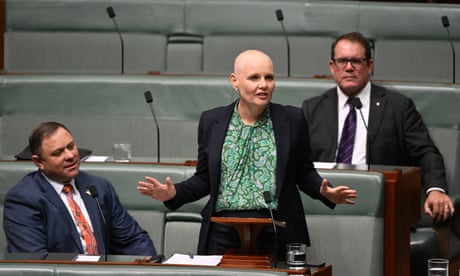Extract from The Guardian

Sometimes politicians get things very right. Today is one of those days.
The Australian parliamentary inquiry into online gambling has released a landmark report recommending comprehensive reform of online gambling regulation in Australia. It signals a significant departure from the long-held resistance of Australian governments to tackle the predatory tactics of the gambling industry.
The title of the report is a powerful reminder of the testimonies from those who have experienced unfathomable harm from online gambling:
“You win some, you lose more.”
These losses are not just financial. Gambling is linked to some of our most pressing health and social issues, including serious mental health problems, relationship breakdown, family violence and criminality. The harms are wide-reaching, not only affecting individuals, but also families and communities.
However, the structural reforms recommended by the inquiry provide some hope.
While Australians are known as the world’s “biggest losers” from gambling, today’s report shows that we now have the potential to be the global leaders in addressing the significant harms caused by the online gambling industry, their products and promotions.
Most importantly, the committee has a made a strong commitment to protecting the next generation from harm, with clear measures to protect our children from exposure to the sophisticated contemporary marketing tactics of the gambling industry. The committee recommends a comprehensive ban on online gambling advertising to be introduced in four phases, over a three-year period. Importantly this ban doesn’t just include advertising, but also gambling sponsorship.
Over the past decade my team has spoken with hundreds of children and their parents about gambling marketing. We have shown the powerful influence that marketing has in normalising gambling for children, embedding gambling within Australia’s social and sporting culture and creating a perception that gambling is a fun and easy way to win money. Celebrity endorsement of gambling, and new digital strategies using influencers have amplified the positive impact of gambling marketing on the way children think about gambling.
Importantly, our research has shown that it is not only boys and young men that are affected by this marketing, with a new generation of campaigns appealing to girls and young women. Campaigns showing betting among mates, and the saturation of gambling ads in sport and popular family friendly shows have generated an exaggerated perception that gambling is something that “everyone” does.
However, the message from children and their parents about the need for government action particularly on advertising has also been clear. As a 14-year-old said in one of our recent studies: “I think we just need to get the ads off the telly. It’s the only thing that will make a difference.”
The committee clearly agrees.
The report also signals the need for the transformational regulatory change of the online gambling industry. It argues governments must take a public health approach to protecting the public from gambling harms, over and above the economic interests of the gambling industry and those who financially benefit from it. Importantly it highlights the inadequacy of current government approaches which have been largely driven by the “responsible gambling” paradigm. This approach places the responsibility for harm on individuals, while absolving governments and the gambling industry from responsibility.
In moving to a public health approach, the report acknowledges that national strategies aimed at preventing gambling harm must take a radically different approach. The 31 recommendations – unanimously backed by members of the committee – start with the need to reform the gambling industry and government regulation. Along with the comprehensive marketing ban and a suite of evidence-based education campaigns, this includes a national gambling harm prevention strategy, a national online gambling regulator and an appropriately resourced ombudsman to handle complaints.
During the inquiry sporting organisations, broadcasters, and the gambling industry gave messages about the need for regulatory balance, warning of the economic impact of regulation on marketing. However, powerful testimonies from those with lived experience, health organisations and public health academics provided clear and compelling evidence about the need to finally put people over profits.
The exceptionalism that has led gambling to be treated so differently to tobacco and alcohol appears to finally be changing. While Australia has led the world on preventing the harms associated with the tactics of the tobacco industry, gambling has been a continuous blind spot for governments. Rather than protecting the community from harm, governments and those profiting from the industry have largely legitimised gambling as a valued social and cultural activity with clear economic benefits for the community.
As the government considers the recommendations of the report there is no doubt that the gambling industry and those who profit from it will seek to water down the proposed reforms. Protecting policy from powerful vested interests has been central to Australia’s success in preventing the health harms from tobacco. It is important the government adopts similar measures to ensure the gambling industry and those it funds directly or indirectly have no involvement in government policy or program development.
Governments have a clear duty of care to protect the community from powerful harmful industries. Now the responsibility lies with the Australian government. Does it choose to lead the world in implementing a suite of public health measures to protect the community and particularly children and young people? Or does it back the powerful interests of the gambling, broadcast, and sporting lobbies?
The committee takes the approach that the health of the community should come first, and the harmful tactics of the gambling industry should no longer be tolerated.

No comments:
Post a Comment